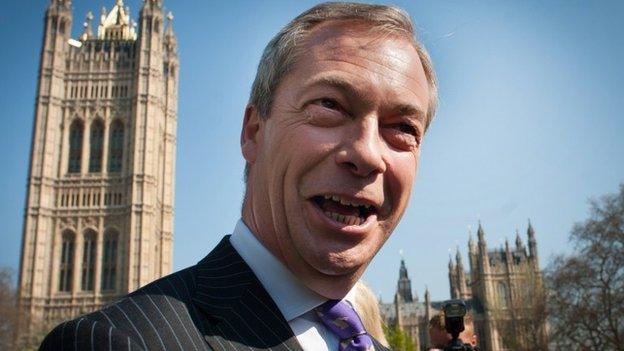How will life change for UKIP?
- Published

UKIP has won a foothold in Westminster. This matters because it gives the party:
1) A voice in parliament. UKIP now has the chance to quiz David Cameron once a week at prime minister's questions. It can also table amendments and instigate debates. The full panoply of parliamentary pressure and publicity is now available to it.
2) Political momentum. This is hugely valuable at this stage of the electoral cycle. It boosts party morale and improves campaigns. And it deflates your opponents.
3) A new defence. UKIP will challenge the Conservative claim that a vote for UKIP is a wasted protest vote that helps Labour hold or win seats. UKIP can argue now that in some places if you vote UKIP, you get UKIP.
4) Public money. MPs get state funding to run offices and staff. And if Douglas Carswell is re-elected next year, UKIP will get access to wider state funds due to parties with a proven electoral record.
5) A stronger case for wider recognition. With an MP at Westminster, UKIP leader Nigel Farage will argue he should appear in television debates at elections, and even at the Cenotaph on Remembrance Sunday.
But an elected MP also presents UKIP with risks:
1) UKIP is now part of the Westminster establishment it purports to loathe. Every step UKIP takes towards the political mainstream is a step away from its status as the insurgent outsider.
2) UKIP is now big enough to become divided. Douglas Carswell is notoriously independent-minded. The potential for disagreement over policy is huge between the libertarian and localist MP and his nationally minded new party. And, as they say in the Dog and Duck, UKIP is now bicephalic. Nigel Farage will no longer be able to run UKIP as a personal fief.
So in the next few hours and days there will be much hyperbole about the impact of this by-election. But what we will not know for a while is whether Clacton will mark a real sea-change in politics or another pyrrhic protest that will ebb with the tide.